Ata-ul-Haye Nasir, Al Hakam
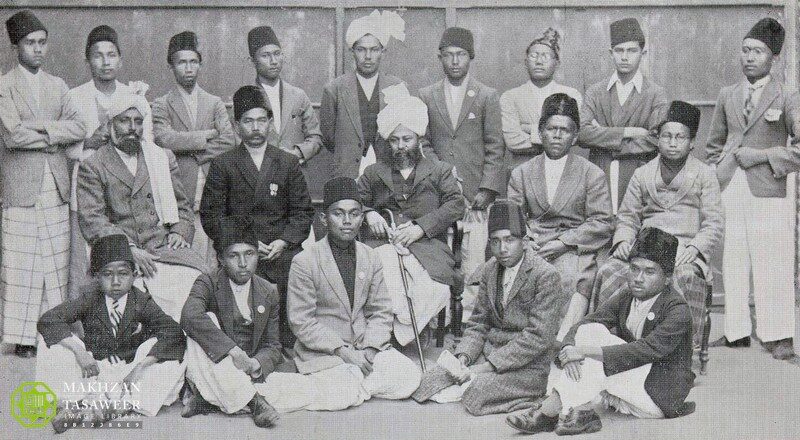
Ahmadiyyat in Indonesia
There are around 50 Muslim countries in the world, and Indonesia is the largest Muslim country with a population of around 270 million, comprising of around 17,500 islands.
In 1923, four youngsters from Sumatra – Maulvi Abu Bakr Ayub Sahib, Maulvi Ahmad Nuruddin Sahib, Maulvi Zaini Dahlan Sahib and Haji Mahmud Sahib – came to India for religious education. In August 1923, Allah’s decree drew them to Qadian after their visit to Calcutta, Lucknow and Lahore.
These youngsters met with Hazrat Musleh-e-Maudra and requested for their religious education and training to be arranged. Huzoorra accepted the request and arranged for their education. While studying, the truthfulness of Hazrat Mirza Ghulam Ahmad, the Promised Messiahas developed in their hearts and they accepted Islam Ahmadiyyat. After swearing allegiance in Qadian, the youngsters wrote preaching letters to their relatives in Indonesia, thus paving the way for preaching of Ahmadiyyat in Indonesia.
On Huzoor’s return from his tour of Europe in 1924, several receptions were held in his honour. The Indonesian youngsters also arranged a tea party on 29 November 1924, in which they presented an Arabic address, and Huzoorra also delivered an Arabic speech in response. (Al Fazl, 4 December 1924, p. 2)
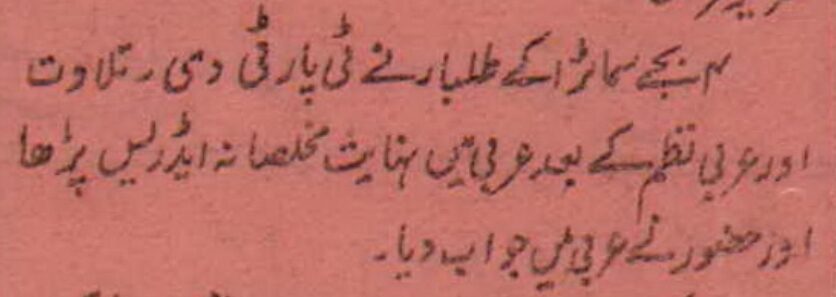
During this event, the Indonesian students spoke to Huzoorra in regard to preaching the message of Ahmadiyyat in Indonesia.
Thus, Huzoorra sent Hazrat Maulvi Rahmat Alira to Indonesia to establish the Ahmadiyya mission there. He departed for Indonesia on 17 August 1925 and in September, reached Tapak Tuan, a small town in Sumatra.
He established the first jamaat (chapter) in Indonesia within a few months, with eight people performing bai‘at, and the first Ahmadiyya mosque built in 1937.
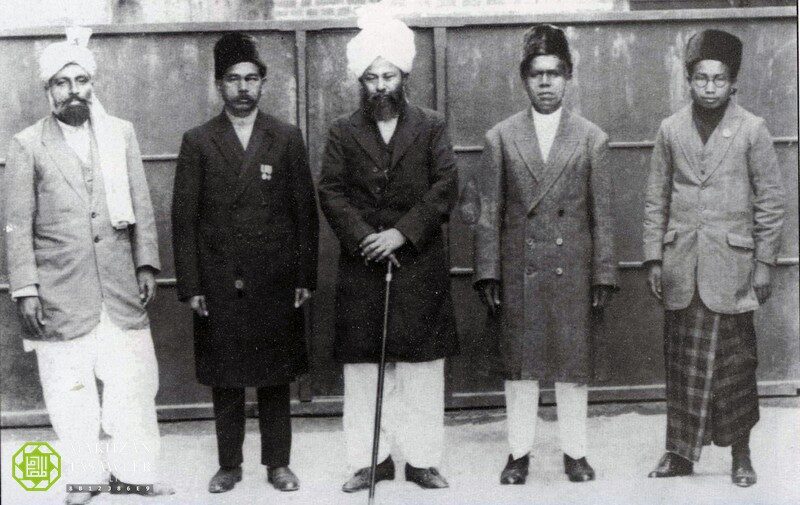
Independence Movement of Indonesia
Since the beginning, Jamaat-e-Ahmadiyya had to face severe opposition in Indonesia, despite the fact that Indonesian Ahmadis have a long history of serving the country with great passion. Ahmadis had also played a great role in Indonesia’s independence movement as well.
Indonesia had been under the Dutch rule since the 17th century until 1942, when the Japanese invaded during World War II.
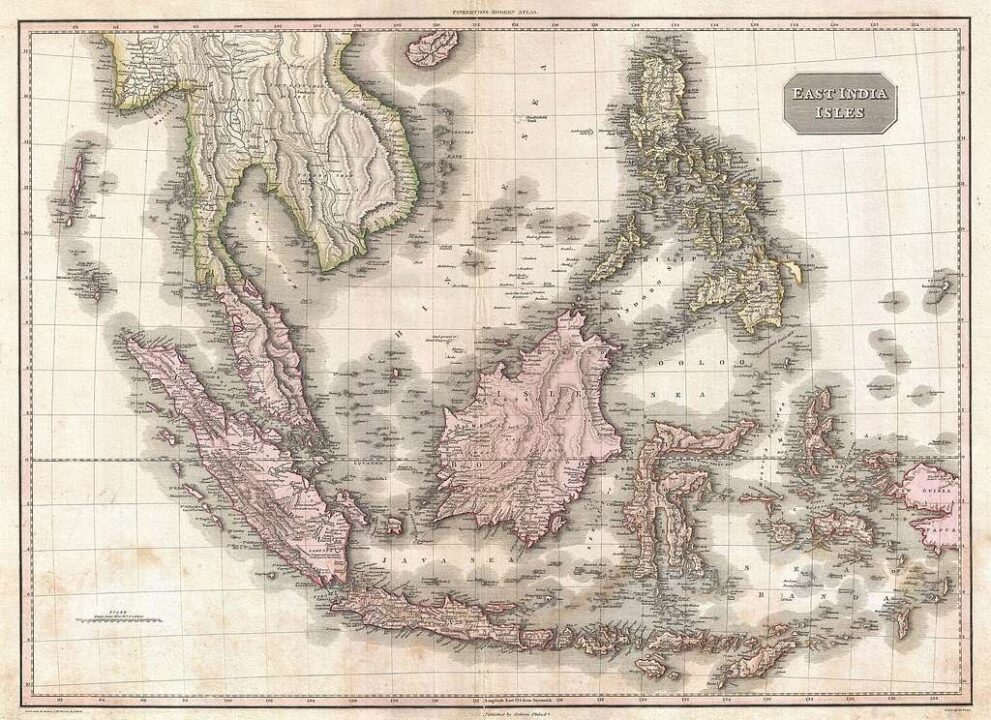
On 15 August 1945, when Japan surrendered to the allied forces, Terauchi Hisaichi, commander of the Japanese expeditionary forces in Southeast Asia, promised to Dr AR Sukarno and Mohammad Hatta – Indonesian nationalist leaders – for an immediate transfer of sovereignty.
On 17 August 1945, Dr Sukarno proclaimed Indonesian independence and announced the establishment of a new government. The Dutch did not recognise the establishment of this government. They attempted to regain their control over Indonesia, which erupted a huge conflict. Thus, a new phase of Indonesia’s struggle for its sovereignty began. (www.britannica.com/place/Indonesia/Toward-independence)
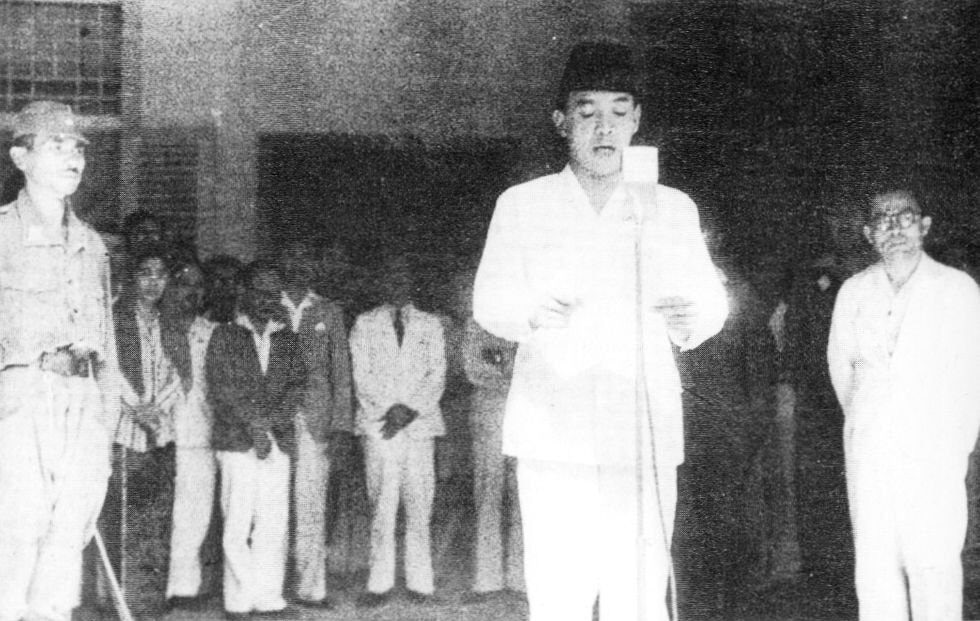
At the time of this announcement, Maulana Muhammad Sadiq Sahib who was serving as an Ahmadi missionary in Sumatra, wrote to Hazrat Musleh-e-Maudra for his guidance on some matters related to the ongoing happenings.
The missionary stated that though the Indonesians had announced their independence and established the government, the allied forces did not recognise their government. He asked whether or not, in view of Islamic teachings, obedience to such a government was obligatory on the public, or whether it was a rebellious government.
Huzoorra said that only such a government could be valid which got the support from the country’s majority, and if the majority of the country formed an independent government, then it would not be called rebellious as per the shariah. Huzoorra added that in his view, the Western governments would not allow a completely sovereign government, thus a compromise would be more beneficial.
The second question was whether the Indonesian Ahmadis could partake in the freedom movement.
Huzoorra replied that if the Indonesian government held the majority’s support, then it was a valid government, and thus, as per the shariah, Ahmadis should follow the government’s plans.
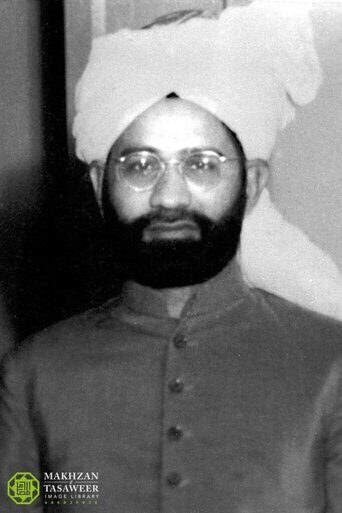
The third question was that in case the Dutch invaded the country and Indonesians tried to retaliate, what should the Ahmadis do.
Huzoorra stated that the best option would be to get as many rights as possible and make a conciliation. In case the government held the majority’s support, then the Ahmadis should support it, but as the Dutch would have the support from the Western powers, it would be unwise for the Indonesians to not reconcile with them. (Tarikh-e-Ahmadiyyat, Vol. 9, pp. 588-589)
Hazrat Musleh-e-Maudra wanted the Indonesians to get their due rights by way of conciliation, which would have eventually resulted in their sovereignty, instead of acting too aggressively.
On 16 August 1946, Hazrat Musleh-e-Maudra called the attention of the Muslim world to support the freedom movement of Indonesia.
Huzoorra stated that there were around 70 million Muslims in Indonesia, who belonged to one nation, spoke a common language and had a desire for unity as well.
He said:
“The Indonesian Muslims have shown a great example of their unity, while striving for their independence, and such an example is not even found in the Arab countries […] The Indonesian islands have displayed such great excellence from which the other Islamic world has been deprived. They have a united voice […] During the last few months, the Dutch tried their utmost to create differences among them, but did not succeed. Regretfully, other Islamic countries do not sense the beauty of unity […]
“Singapore is the key to the Asian countries, and that too cannot remain separate from the [Indonesian] islands because it is a part of these [islands] with respect to race and language. And if Singapore is in the grip of a nation, then other countries would feel compelled to make peace with it.” (Al Fazl, 27 August 1946, p. 3)
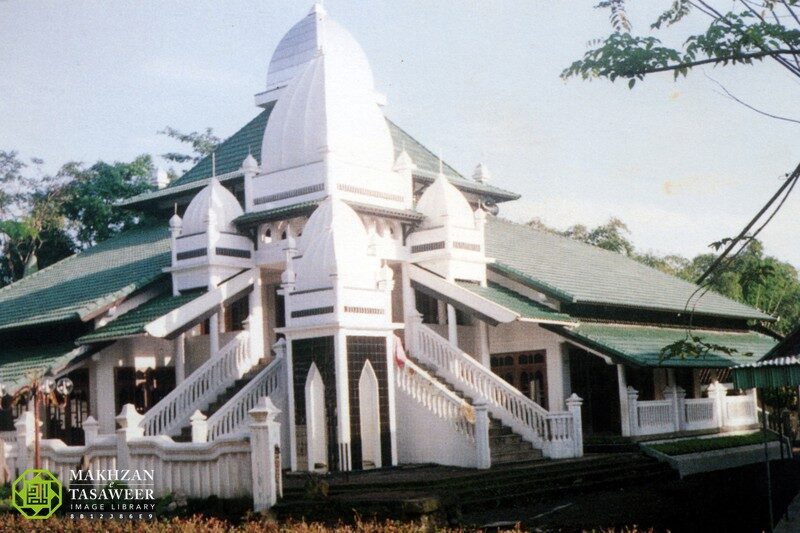
Huzoorra continued:
“If these islands become independent, they could serve as a huge source for spreading the Islamic teachings and Islam’s majesty. But regretfully, other Islamic countries have raised very minimal voices in favour of these islands, and shown very little sympathy for them. This is an area where the Muslims are in the majority […] The Muslims should exert every possible effort for the help of this area, and demand from the Dutch their independence […]
“A dire need of the time is that the Muslims should raise their voice in favour of their [Indonesian] brothers, in their newspapers, magazines and gatherings, and demand for their independence. If they are not helped and supported now, then I fear the Dutch will completely suppress the voice [of the Indonesians].” (Ibid)
Huzoorra stressed that the political future of the Asian Muslims was linked with the future of the Muslims of Java and Sumatra because no other country had Muslims united in such great numbers compared to Indonesia. Moreover, these islands could prove very beneficial for making good relations with other countries through seaways.
Huzoorra continued:
“Our missionaries who are [present] in different countries should raise their voice [for Indonesia’s independence] and write articles in different magazines and newspapers in favour of Indonesia. It is the duty of our own newspapers and magazines to raise this voice time and time again as much as possible, so that all those Muslims start supporting Indonesia’s independence, who learn about this through our newspapers and magazines […]
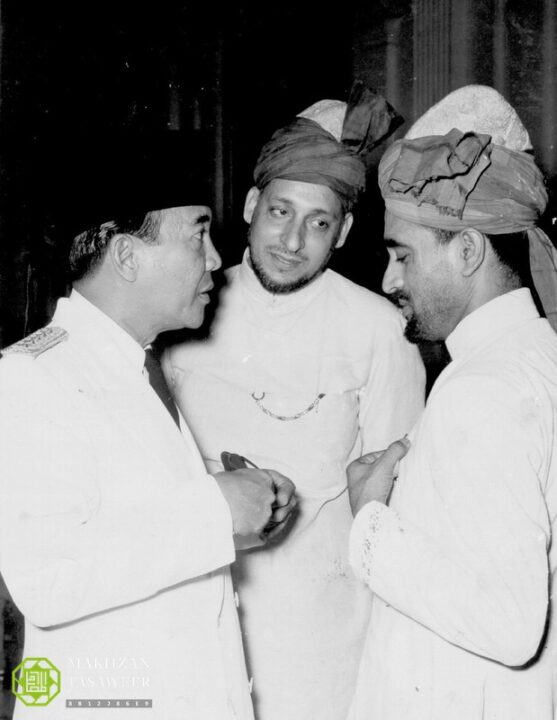
“Our missionaries are present in five European countries. Our missionaries are present in North and South America. If members of the Jamaat understand their duty, I think that they would definitely succeed in this cause with the grace of God Almighty. Such articles should be published regularly in our newspapers and magazines, that state that the people of Java and Sumatra have the right to get independence.
“[Indonesia] is a developed country with respect to education and industry, and a smaller nation like the Dutch has no right to rule such a big nation with such a huge population. The very first benefit of the presence of a foreign government should be that it should protect the [ruled] country, but the Dutch government is not capable of protecting Indonesia from foreign attacks.” (Ibid, p. 4)
Huzoorra further stated that such articles should be published in newspapers and magazines in which the Dutch should be told:
“If they do not give independence to Indonesia, then there is a danger that communism will spread there, which will be dangerous for all other governments as well […] Your act of giving independence to Java and Sumatra, will not weaken you; rather, it will be a source of strength […] If you give them independence with love and peace, it will instil the emotions of love for you in their hearts. But if you oppress them, it will create a severe grudge against you in their hearts once they get independence from you.” (Ibid, p. 5)
Huzoorra continued:
“We have no interest in political matters, instead we are concerned with religious preaching. But we will exert every possible effort whenever the future of Islam is concerned […] and according to the requirements, we will continue to expand our efforts […] If the reason behind our special sympathy for the Arab [world] is that we have learned Islam from the Arabs, then the reason behind our special sympathy for the Indonesians is that after India, this area is at the forefront in accepting Ahmadiyyat. Thus, it is our duty to exert every possible effort for this country’s independence.” (Ibid)
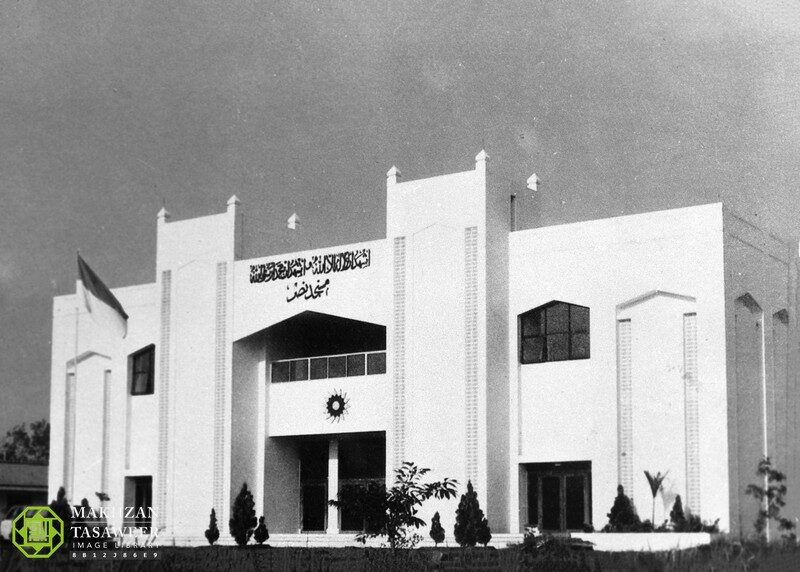
Then, during his Friday Sermon on 30 August 1946, Hazrat Musleh-e-Maudra stated:
“The circumstances faced by the Muslims nowadays are very bleak. The identity of the Muslims in places such as India, Palestine, Egypt, Indonesia is in severe danger […] The Dutch government is leaving no stone unturned to enslave the Muslims in Indonesia […] So, all members [of the Jamaat] should especially pray these days. The other [non-Ahmadi] Muslims should also be urged to start praying, as there is no other remedy for the Muslims. Until the Muslims step aside from worldliness and the pursuit of luxury and unite for offering all types of sacrifices […] success is impossible.” (Al Fazl, 10 September 1946, p. 2)
During his Friday Sermon on 18 October 1946, Huzoorra stated:
“Initially, Japan had occupied Sumatra and Java, then the sovereign Indonesian government was established. Then, the English tried to bring the Dutch there [again], and now a republican government is established there. There had been many trials for our Jamaat as well, and during the time of Japanese occupation, Ahmadis had been treated harshly […] When they had strongly revealed their intentions against Jamaat-e-Ahmadiyya, suddenly Allah the Almighty dissolved their government, and a republican government was established in Indonesia […]
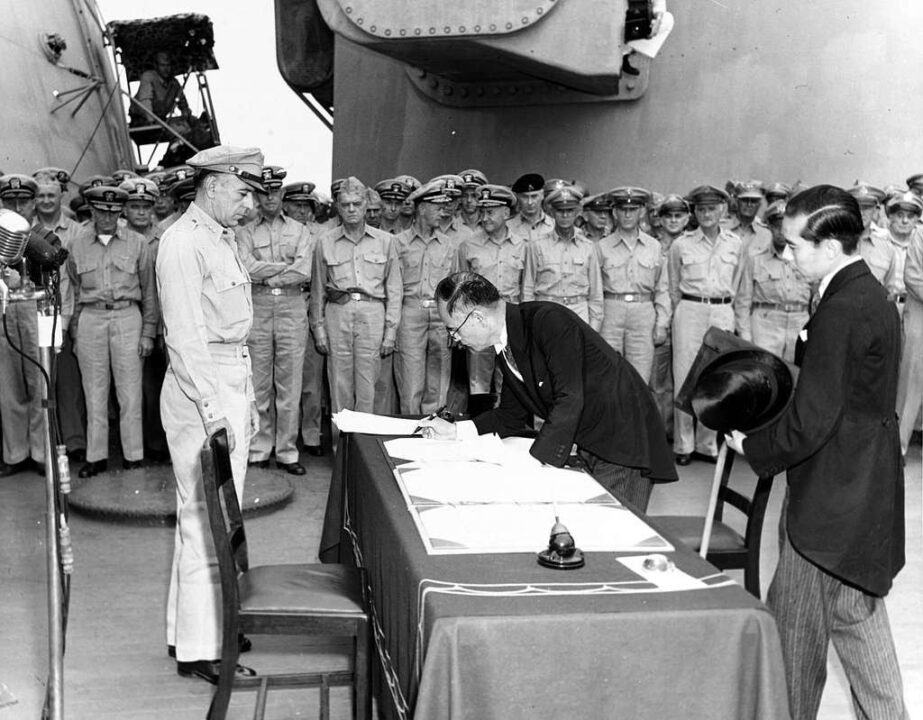
“During the time of the republican government and even before that, when the people were only striving for the protection of their individual rights, our Jamaat supported the republican movement, and exerted efforts to capacity for the country’s independence. For this reason, when the republican government was established after the Japanese withdrawal, the overall treatment with our Jamaat was good.” (Al Fazl, 13 November 1946, p. 1)
During his Friday Sermon on 10 September 1948, while describing the problems faced by the Muslim world, Huzoorra stated that the only solution to eradicate those problems was Muslim unity. (Al Fazl, 28 September 1948, p. 4)
Through the Linggadjati Agreement of 15 November 1946 – signed on 25 March 1947 – the Dutch agreed to transfer sovereignty to Indonesia in due course. In July 1947, the Dutch, in an attempt to settle matters by force, initiated police action against the republic, and again in December 1948. Finally, the Dutch agreed in August 1949 to transfer sovereignty to Indonesia in December 1949. (www.britannica.com/place/Indonesia/Toward-independence)
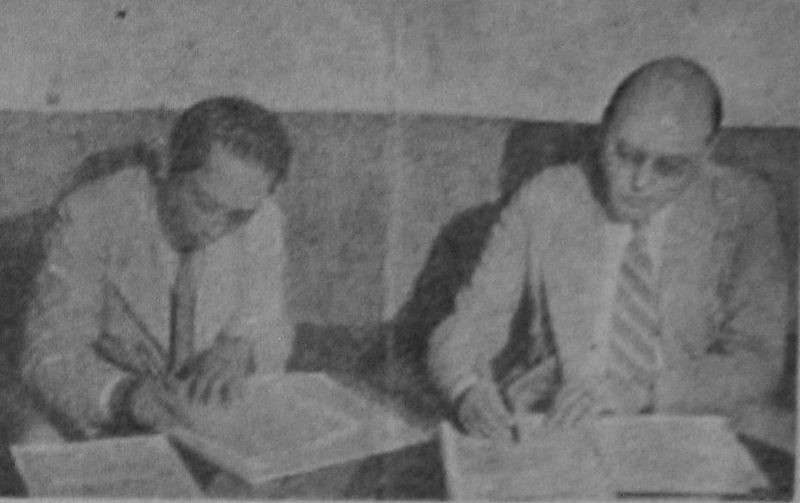
During his Friday Sermon on 11 February 2011, while mentioning the Jamaat’s services for the independence of Indonesia, Hazrat Khalifatul Masih Vaa stated:
“Hazrat Musleh-e-Maudra raised a strong voice from the Indian subcontinent in favour of the Indonesian independence movement, and urged other Muslims to strongly support the Indonesian independence movement. This was stated by Hazrat Khalifatul Masih IIra in his Friday Sermon on 16 August 1946. Following this guidance, Ahmadi missions around the world, in addition to Qadian’s central press, were called on to raise their voices in support of the Indonesian independence movement. Eventually, Indonesia gained independence […]
“The Ahmadi missionaries and other [Indonesian] Ahmadis took part in the freedom movement under the guidance of Hazrat Khalifatul Masih IIra, and the Ahmadi missionaries and members of the [Indonesian] Jamaat worked along with the Republican government.
“Syed Shah Muhammad Sahib went to Yogyakarta and met with Dr Sukarno and requested him that he wished to serve the country by joining the freedom movement. He was also a missionary. In addition to some other works, President Sukarno gave him the task of broadcasting news in Urdu on the radio. In addition, Maulvi Abdul Wahid Sahib and Malik Aziz Ahmad Khan Sahib also worked on the radio for about two or three months.
“Syed Shah Muhammad Sahib enthusiastically joined this movement. His enthusiasm was so great that a former interior minister [of Indonesia] said, ‘We recognise Syed Shah Muhammad Sahib as a member of our own nation.’ […] In recognition of the role played by Syed Shah Muhammad Sahib during the independence movement of Indonesia and the services rendered by him, Indonesia granted him a certificate of acknowledgement on 3 August 1957 […]
“During the independence movement in 1946, some Ahmadi members sacrificed their lives and were martyred. One of them was Radin Muhyiddin Sahib, president of Jamaat Indonesia, who was also the secretary of the Committee for Indonesia. He was busy preparing for the celebration of the first independence day of Indonesia, when he was abducted by the Dutch forces, and martyred later.” (Khutbat-e-Masroor, Vol. 9, pp. 67-68)
Jamaat-e-Ahmadiyya played a great role in Indonesia’s independence, and the Indonesian Ahmadis continue to serve their country, despite facing severe opposition from their countrymen.


Masha-Allah!
Masha-Allah. Indonesia is an important part of our ummah. We must continue to support the Republic and help guide them to make better world.